In my family, holidays were Owela time! Two days after school closed my brothers and I would be on our way to Ongha Village. We used my parents’ trusted mode of transportation, Ondobe Liner, an Iveco minibus driven by my uncle Richard. On the way we saw homesteads interspersed and amongst them were Makalani Palms, Mopane and Marula trees. That’s how we knew and felt we were almost home. A beige Toyota bakkie was in the distance at the bus stop and we instantly knew it’s Auntie Kayoso waiting for us. We ran to her and she embraced us warmly, home we drove.
In the village, every day after lunch and harvesting mahangu (pearl millet) on the fields, we had Owela Championships. My cousins Elise and Ndapandula loved this game. So I had to quickly get into it to solidly compete with children from other homesteads. I wasn’t that great at it, but I worked my way up every holiday.
We were a pretty competitive bunch. Hence, choosing the perfect team was always an important decision to take if you wanted to win. For us it was the perfect way to spend time together, even though we sometimes brutally teased each other. When our team lost, we would sit amongst those still in the running to verbally intimidate them. I have to admit that being a bit mean compensated for the defeat; it was fun.
The game of Owela is closely associated to Mancala, which scientists deem to have originated in southern Africa. It is largely played in Asia, Arabia and Africa. Names for the game differ by country. In Namibia it is referred to as ||hus/xoros (Nama/Damara), onyune/otjitoto (Otjiherero), wera (Rukwangali, Rumanyo), lochspiel (Deutsch), owela (Kwanyama) and ogoro (Ndonga).
Originally the game was played in holes dug into the ground, with no restrictions to the amount of players, but a minimum of two. It is played with two or four rows of holes and number of holes differ from game to game.
The most common variation is the one with four rows; the two rows on your side are yours and the other two are the opponent’s. Marula seeds or any other type of seeds, pebbles, marbles or stones serve as game figurines. The “captured” seeds must be played continuously, and moved anti-clockwise.
The holes represent kraals (cattle enclosures). The seeds are symbolic of bulls, calves, cattle and cows. Players become rich by stealing their opponent’s cattle (seeds). Like chess, it gets people to think critically and learn mathematical skills.
Players need to have at least two seeds to move to a desired hole and place one in each hole within the row. If the player places their last seed, and there are two or more seeds in their inner hole, he/she gains the opponent’s seeds. And so it continues. You win when the opponent’s seeds are all on your side or they are unable to move. The difference between the four- and two-row-game is that once seeds are captured, they are removed from the game. In this case, the player with the most seeds is the winner.
Fast forward the video below to 12 minutes:55 seconds to see how the game is played at the Mbunza Living Museum.
Owela takes many forms and is played by different people all over the world. It is a way to unify people and preserve cultural heritage. It is where you will find a young Oshiwambo speaking security guard and an elderly Damara speaking man in conversation and laughter, while enjoying the game of Owela.
The game is also popular at the Mbunza Living Museum close to Hakusembe River Lodge and Namushasha Heritage Centre.
Have you played Owela? Share your story in the comment section below.
Author – I’m Nela, from Windhoek Namibia but born in a small village called Omatunda in northern Namibia. I am passionate about writing, research and photography, as it helps me gain knowledge about people and my country.

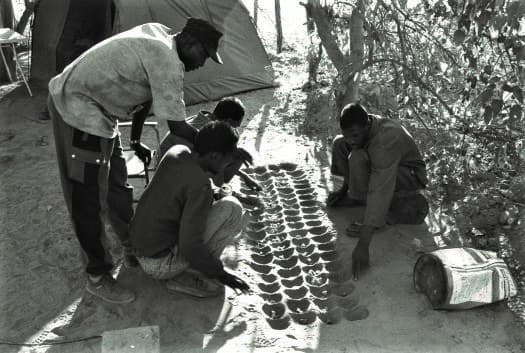
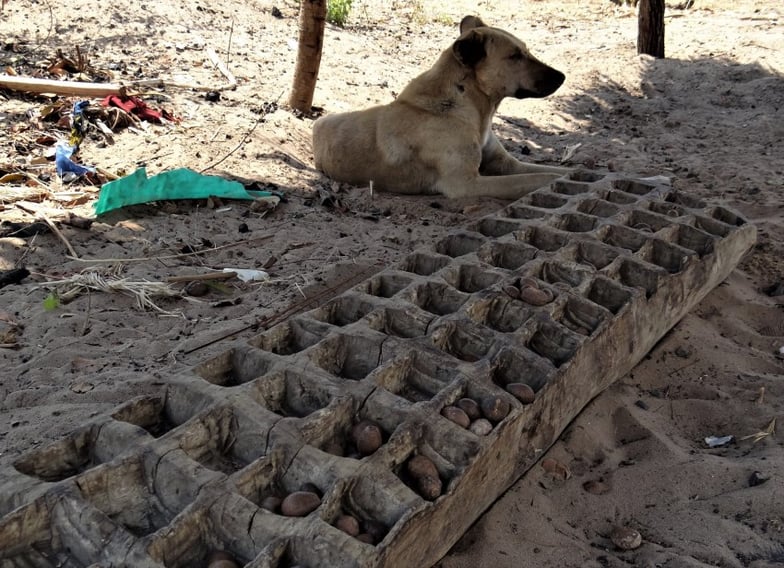
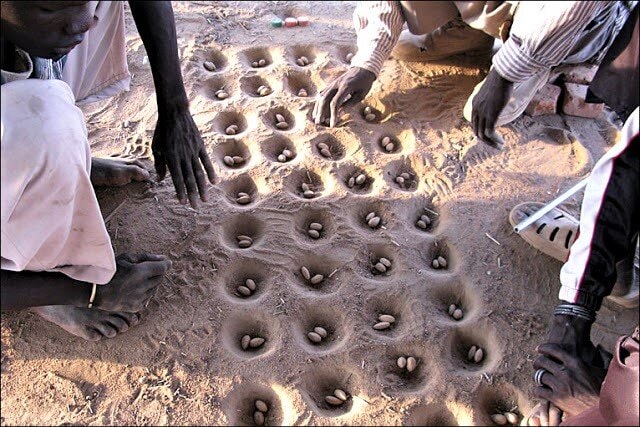
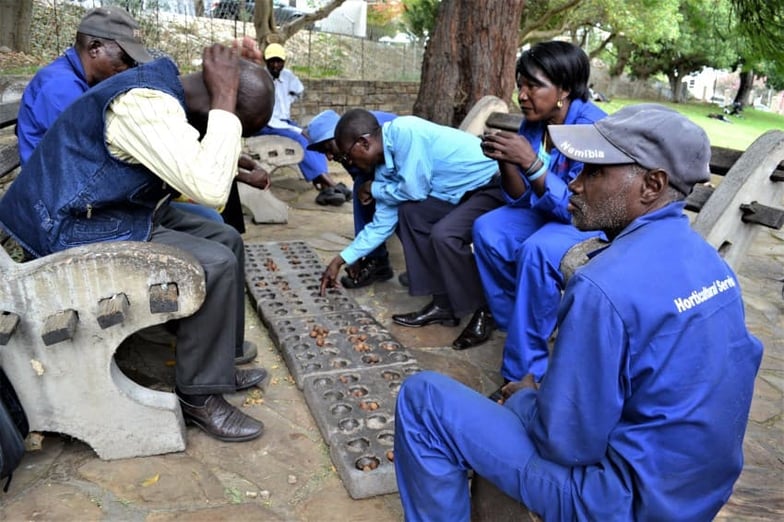
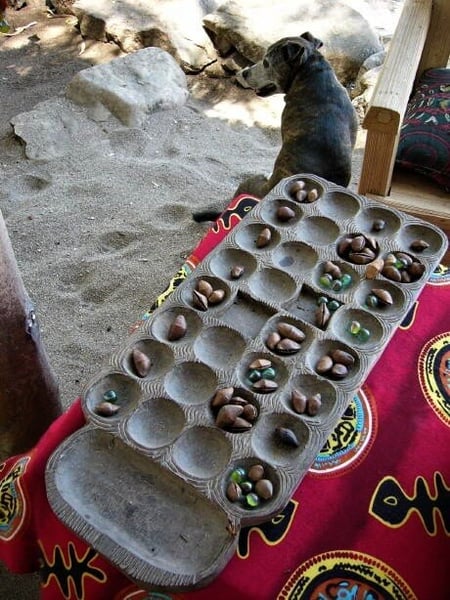
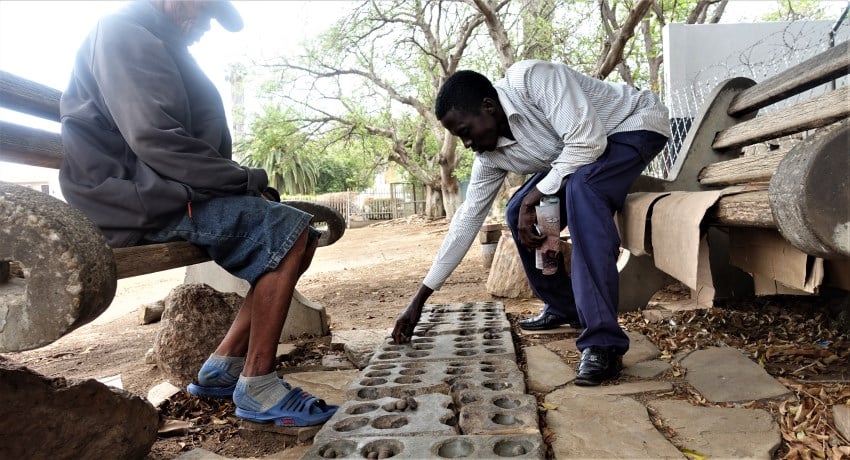

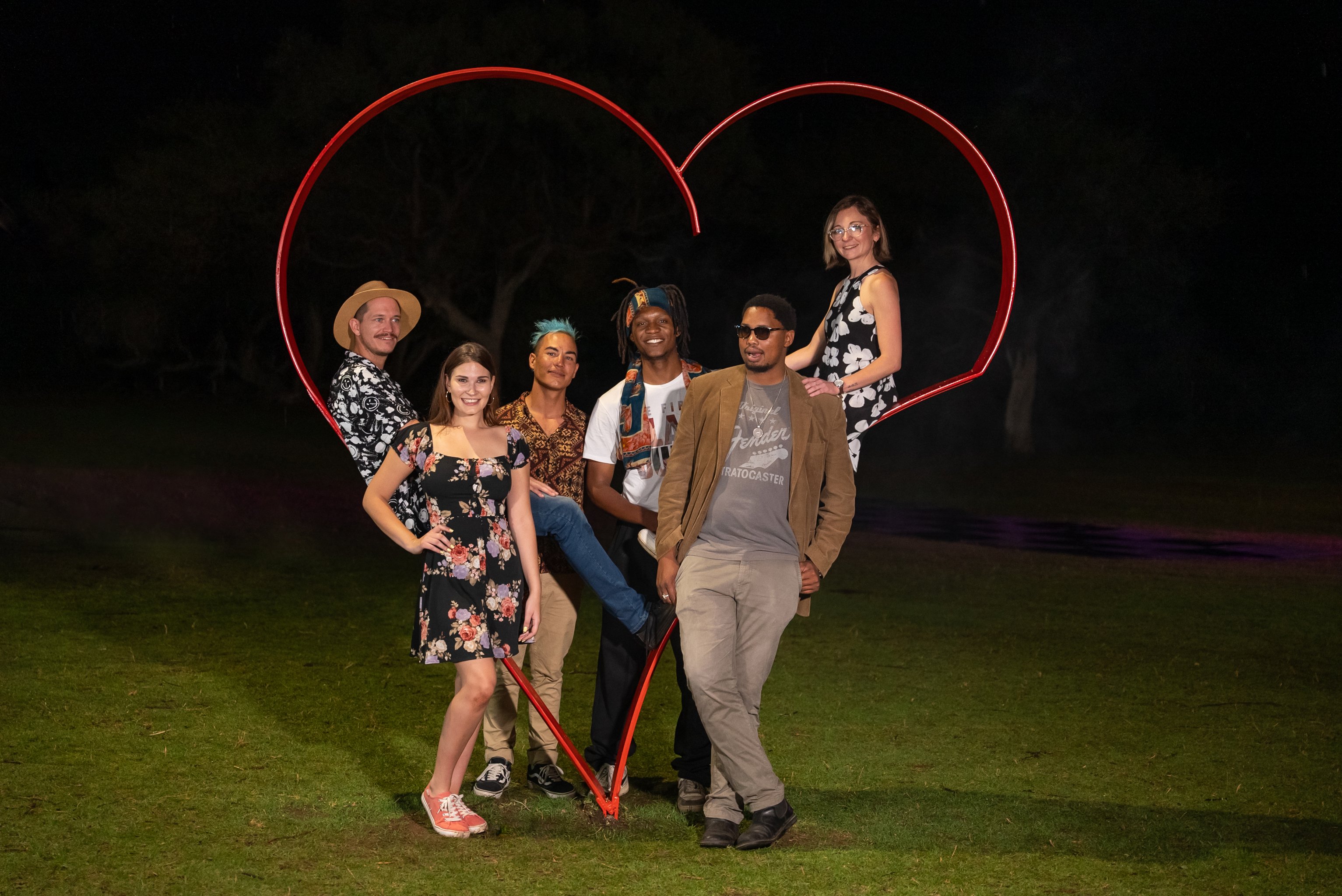
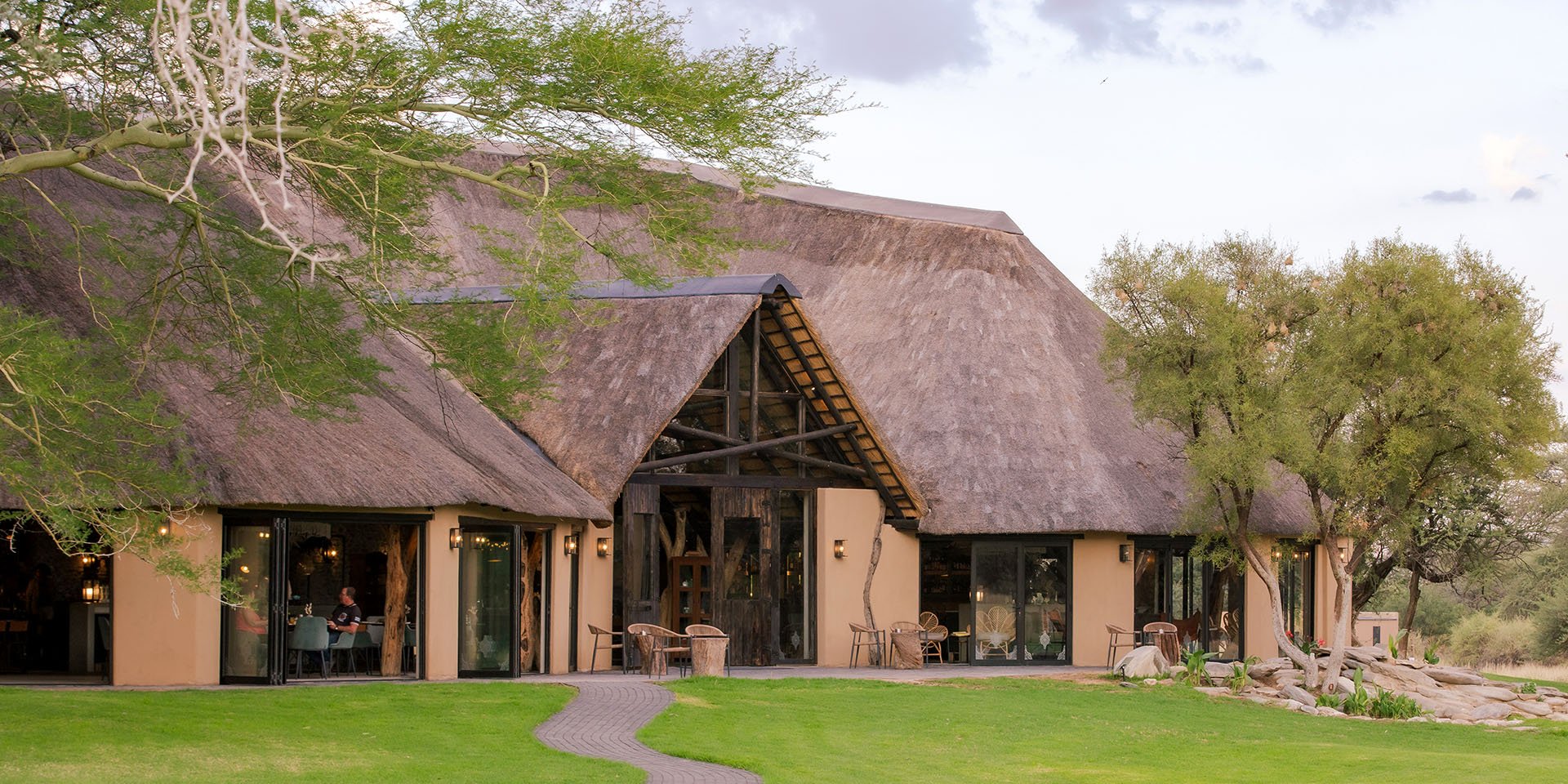
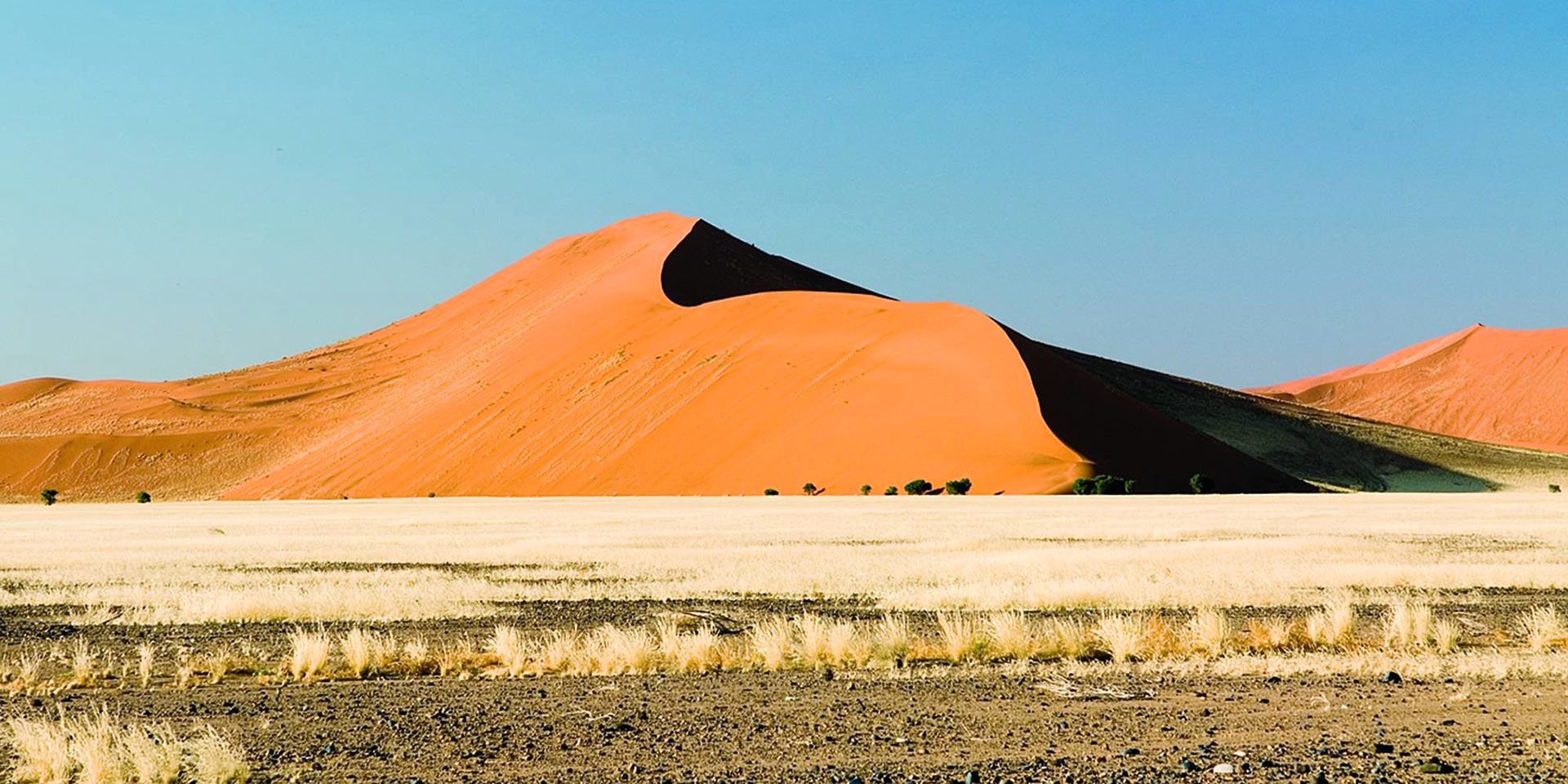

SUBMIT YOUR COMMENT